1968 ... five years from our Senior year and our graduation from CHS. A significant year for our country and our generation ... although I'm sure very few if any of us expected it to be so startlingly significant when we joyfully kissed and celebrated as the calendar turned relentlessly from December 31, 1967 to January 1....
Some of us were in college ... some had graduated and started careers ... some had gone straight to work from high school ... some were married and raising families by then ... some had been divorced ... and some were serving our country in the military, as a volunteer or a draftee. Some of us were still trying to decide what we wanted to be when we "grew up".... A dark cloud called "Vietnam" ... seemingly small and far away on the horizon when we walked the stage for the last time at CHS ... was looming larger in our minds and lives, and for our country as a whole.
By 1968, there were more than 500,000 U.S. soldiers serving in Vietnam. We had already lost our first former classmate to premature death ... Clifton Stewart, dead on November 21, 1966 ... though many of us were likely unaware of this particular grim milestone when it passed. And ... having legally "come of age" (21 then) ... we were about to cast our first votes to determine who would be President of the United States ... a significant ritual solemnizing our entry and participation in the "adult" world.
The music we had grown up and graduated with had morphed into the "British Invasion" and the glory years of Motown, psychedelic and "pop" rock, folk music and songs of protest ... of the undeclared but still real and deadly war in Vietnam, of inequality between races and classes of people, of anger and rebellion against the "society" which had nurtured and perhaps conversely stunted us during our "formative" years. As Bob Dylan sang in 1964:
Come gather 'round people
Wherever you roam
And admit that the waters
Around you have grown
And accept it that soon
You'll be drenched to the bone ...
Then you better start swimmin'
Or you'll sink like a stone ....
The line it is drawn
The curse it is cast
The slow one now
Will later be fast
As the present now
Will later be past ...
For the times they are a-changin'.
We could not help but realize that the times were changing, and that we were changing as well ... had indeed changed from the adolescents we had been in May 1963 ... when our ideas and beliefs had been as much the progeny of our parents as we were. Perhaps even by 1968 some of us had not fallen far from the parental and communal tree of life we had known in Childress ... but as must happen to everyone when they leave the shelter of the nest, we were finding that sometimes the "verities" we had once taken for granted no longer fit the world in which we lived and the lives we were constructing. Benjamin Franklin posited: In this world nothing is certain but death and taxes. But with all his wisdom, Franklin missed acknowledging the imperative for change which is likewise certain and inexorable, just like death and the turn of the calendar. Taxes at least are "negotiable" ... or malleable, in the hands of a creative accountant....
In November of our graduation year, our world and our psyches had been rocked by the assassination of President John F. Kennedy ... an unthinkable, unspeakable act for which we, and the country, were totally unprepared ... which even today remains writ large in our memories, the seminal event for the cataclysmic changes which would mark the rest of the decade. (See my post The Times of Our Lives: November 22, 1963 ... the day of the bells ..., published January 11, 2008.) The swearing-in of President Lyndon B. Johnson aboard Air Force One ... impossible for me to remember and visualize without also seeing the image of Jacqueline Kennedy standing there in her ruined pink suit (surely a metaphor for our now bloodied generation), grief-stricken and stunned from the horrors she had witnessed and experienced a few hours earlier ... also inaugurated times of change and a revision of the old social orders. The time when segregation would be tolerated de facto if no longer de jure, as it was when we were at CHS, was passing into history. Those who had been disenfranchised and denied because of race or poverty were being given their voting rights at last, despite rabid resistance which remained in some parts of the country. In 1968, in some states, people of different races were still not permitted to marry, despite the 1967 Supreme Court ruling striking down such racist laws.
As a society, of which we were now voter registration card-carrying members, many of us were finding we could no longer ignore and tolerate the manifest injustices that had been perpetrated against an entire race, against women, and against the poor and other minority classes of our fellow citizens. Some of us no doubt embraced these changes as long overdue, while others resisted such "disruptions" ... the beginning of a schism in what had been a fairly homogeneous mindset for the majority of the country in the years following World War II. Activist movements to effect change were becoming more common, more strident, more demanding of sweeping and immediate transformations in tenets and lifestyles we had largely theretofore taken for granted.
For some of us, knee-length or longer (often homemade) dresses and skirts, and "comfortable" Levis worn under our Dad's shirts with socks and penny loafers, had given way to the miniskirts, baby-doll dresses, knee-high or white mid-calf "go-go" boots and hip-huggers of London "mod gear" ... Carnaby Street and Mary Quant ... accoutered by huge lined and mascaraed eyes, flowing manes or chicly sculpted short tresses, and pale pouty lips. We moved beyond Buddy Holly and Patsy Cline, both dead before we graduated in 1963, and discarded our earlier fealty to Elvis until he reinvented himself in black leather for his 1968 Comeback Special.
We grooved to the music of the Beatles (which was itself in metamorphosis) and the Stones (self-styled "Satanic Majesties"), listened to Aretha Franklin demand just a little R-e-s-p-e-c-t, Heard It Through the Grapevine with Marvin Gaye, thrilled to the soaring harmonies of the Mamas and the Papas, and took inspiration from Steppenwolf, who averred that they, and we, were Born to Be Wild. For those who preferred country music, it is worth noting that it was in 1968 that Johnny Cash cut his legendary live album At Folsom Prison, while Tammy Wynette sang openly of D-I-V-O-R-C-E, and Jeannie C. Riley "socked it to the Harper Valley PTA." Changing times indeed....
Many of the guys, even in Childress, grew their hair longer and donned bell-bottoms, patterned shirts and Edwardian jackets. Some, although inevitably evolving in attitude and outlook, never abandoned their mode of dress from high school, as evidenced by my occasional glimpses of them when we visited Childress and chose to spend an evening in Hollis dancing at Fuzzy's or The Sand Bar ... or at the 19th hole of the Childress Country Club (CCC), where we could now order a drink along with our parents. Another breach in the formerly mystic bastion of adulthood.... The jukebox there was a melange of music types and styles, running the gamut from Glen Campbell's By the Time I Get to Phoenix and The Legend of Bonnie and Clyde by Merle Haggard and the Strangers, to Simon and Garfunkle and Buffalo Springfield (the forerunner of the group that would become Crosby, Stills & Nash, eventually adding Young, and later sing about Guinnevere of the golden hair, a free spirit who drew pentagrams late at night while no one watched, but couldn't see the man who longed for her) ... but still no Jimi Hendrix or Janis Joplin with Big Brother and the Holding Company, apparently still a few searing chords and a primal scream or two too far out man for the CCC.
As 1968 began, the societal rupture and upheaval we were about to experience had been in prolonged gestation, although a rending, difficult birth was imminent. We marked many notable events in January ... the flowering of the "Prague Spring" in Czechoslovakia, brutally crushed by the Soviets and their Warsaw Pact allies in August; the television debut of the irreverent Rowan and Martin's Laugh-In, which arguably changed the face and style of comedy; the seizure of the USS Pueblo by North Korea on January 23; the beginnings of the Battle of Khe Sanh and the Tet Offensive in Vietnam, both generating widespread and increasingly heated debate of our involvement in an undeclared war in Southeast Asia, which ultimately by the time of its tragic denouement in April 1975 would cost in excess of 58,000 American lives ... mostly young lives ... mostly lives of our generation. I remember hearing at about that time that Travis Simmons, two years ahead of us at CHS, had been killed in Vietnam ... and I knew others who served there, honorably and well, who were forever indelibly marked by their service. I have often thought that as long as there is one of our generation alive, that war will never truly end.
Frederick Hart sculpture, a part of the Vietnam Veterans Memorial in Washington, D.C.
On February 1, a photograph of the execution of a Viet Cong suspect in Saigon (it won the Pulitzer Prize in 1969) would serve as a further catalyst for a re-evaluation of our presence in Vietnam, a conflict which had been escalating steadily and was touching more and more American lives and families with tragedy. On March 12, President Johnson won a narrow victory in the New Hampshire primary over "peace" candidate Eugene McCarthy, reflecting burgeoning dissatisfaction and disagreement over the War, and on March 16, New York Senator Robert F. Kennedy (brother of the murdered JFK) entered the Democratic Presidential race, promising to end U.S. participation in an event which was increasingly perceived as a quagmire for our armed forces and our country. Also on March 16, American troops killed Vietnamese villagers at My Lai, although the details of the incident would take a long time to unfold. On March 31, President Johnson announced that he would not seek re-election, and would not run if nominated, thus becoming the most visible, if still living, casualty of the war until that time.
And then on April 4, Martin Luther King, Jr. was assassinated in Memphis, Tennessee. Assassinated ... once again, that terrible, dreadful word ... that almost unthinkable act ... a shock to so many of us, no matter what we may have thought personally of Dr. King or the civil rights movement. The arbiter of equality and non-violent change, dispatched so swiftly and irrevocably in the sharp, violent crack of a rifle shot. After the pain of the John F. Kennedy assassination, many of us had taken comfort in thinking that Kennedy's murder was merely an obscene anomaly in our "enlightened" day and age ... and yet, somehow it had happened again. Grief and disbelief ... followed by fear and fury after several days of violent riots in major American cities, one coming unnervingly close to the White House, and a shootout between Black Panthers and police in Oakland, California. What was happening to our country ... our world ... our sense of values? Some of us felt lost, adrift, bereft of the core beliefs we had held for so long. On April 11, President Johnson signed the Civil Rights Act of 1968, eased in its passage through the sometimes intractable Washington bureaucracy by Dr. King's death.
On June 5, Senator and Presidential candidate Robert F. Kennedy was shot to death in Los Angeles by a(nother) lone gunman, and the mind again reeled as we faced the fact that there were certain people, certain segments of our society, who thought it perfectly acceptable, even reasonable, to murder someone with whom they disagreed, as Ku Klux Klan members had done to three civil rights workers in Mississippi in 1964. James Earl Ray was arrested in London on June 8 for the murder of Dr. King, an event almost lost in the horror and shock over the latest Kennedy death.
Buried in the back pages of our newspapers, and likely only remarked by a few news commentators, if any, it was noted that on July 11 an obscure man named Saddam Hussein had led a coup d'etat in a Middle Eastern country, thereby first achieving ultimately corrupting power by becoming Vice Chairman of Iraq's Revolutionary Council.
In August, Richard Nixon was nominated as the Presidential candidate of the Republican Party, and chose Spiro Agnew as his Vice Presidential running mate. Amid unprecedented violent clashes between police and anti-war protesters in Chicago, Hubert Humphrey and Edmund Muskie were nominated by the Democrats. Humphrey-Muskie would go down to a narrow defeat in November, and Nixon-Agnew would be re-elected by a landslide in 1972. Segregationist candidate George Wallace proved disturbingly popular among some segments of society, and became the last third party candidate to win an entire state's electoral votes. Both Nixon and Agnew would later resign from their offices in disgrace (Agnew in 1973 and Nixon in 1974), becoming the only Presidential and Vice Presidential team in U.S. history to do so. The resignations, and Nixon's and Agnew's earlier vitriolic attacks on the news media investigating them, were inarguably, I believe, major contributing factors to our present-day cynicism and disillusion with politics.
The Vietnam Veterans Memorial Wall by night, Washington, D.C.
In September, more than 150 women in Atlantic City protested the Miss America Pageant as being exploitative of women. Bras were burned, a thousand jokes were launched and the groundwork was laid for Rush Limbaugh's later rants against "Femi-Nazis" ... while most women quietly and outside the movement went on with the business of trying to obtain equal pay for equal work ... a goal still not realized. On October 7, NASA launched Apollo 7, the first of the manned Apollo missions, and there was a resurgence of pride in American accomplishments. At the games of the XIX Olympiad in Mexico City, the medal ceremonies of October 16 were marked and marred by the raised-fist Black Power salutes of American sprinters Tommie Smith and John Carlos. On October 24, the Department of Defense announced that about 24,000 U.S. troops would be sent back to Vietnam for involuntary tours of duty. In social notes, on October 20 Jackie, the beloved, iconic widow of President Kennedy, married Greek shipping magnate Aristotle Onassis on the island of Skorpios, putting a final dissonant coda to the end of Camelot. And on October 31, months after John McCain's plane was shot down and he became a Prisoner of War in Hanoi, President Johnson declared that he had ordered a complete cessation of the bombing of North Vietnam, effective the next day.
On November 14, the formerly exclusively male bastion of Yale University announced that it would become coeducational, to genteel and sometimes misogynistic consternation. (Many alumni of Texas A & M became apoplectic when the school went fully coed in 1970. My late father-in-law was one of them, and thereafter never donated a dime to the school, despite his earlier years of great pride in being an Aggie.) NBC's switchboard was swamped on November 17 when the network cut off the remaining 65 seconds (in "official time") of the Oakland Raiders-New York Jets football game in order to broadcast Heidi. The Raiders came from behind and scored two touchdowns, making the most of those precious seconds and enraging football fans across the country, causing NBC and the other networks to reevaluate their positions on cutting away from sports events to begin regular programming on time. On November 22, five years to the day after the assassination of President Kennedy, the Beatles released their eponymous ninth album, which would become known as The White Album, containing such music as Back in the U.S.S.R., Revolution and Helter Skelter ... taken as inspiration by a lunatic, homicidal, self-styled guru named Charles Manson, who would direct the terrifying murders of pregnant actress Sharon Tate and others in Los Angeles in August 1969.
On December 24, Apollo 8 entered lunar orbit and U.S. astronauts Frank Borman, Jim Lovell and William Anders became the first humans to see the dark side of the moon, and the entirety of the earth, as prelude to the launch of Apollo 11 and the moon landing by Neil Armstrong and Edwin "Buzz" Aldrin July 20, 1969. Armstrong's "one small step for a man, one giant leap for mankind" fulfilled President Kennedy's goal of putting a man on the moon (and effectively winning the space race with the Soviets) before the end of the 1960s.
Whether you supported or opposed the Vietnam War, or like many came to oppose the war after initially supporting it ... whether you wore a peace symbol or a uniform, or both, or neither ... whether you believed the diverse movements toward civil rights for our fellow citizens were overdue in coming, or should have arrived "in due course" with calm, barely perceptible change ... whether you believed it was the right and duty of U.S. citizens to oppose policies of our government which they believed immoral or unjust, or felt that our government should be supported fully and completely, no matter what ... whether you loved our country but recognized its inequities and the necessity for change, or espoused that we should all love America without question or leave it ... whether you lived in a small town where change sometimes comes glacially, or in a larger city more roiled and affected by the tempests of the times ... the events of 1968 could not have failed to affect your life and your vision of the world today. As Dylan prophetically sang, our "present" in those days has now become our past, yet the reverberations and consequences of that year still resonate today, and will continue to influence our lives and those of our children and grandchildren, for many years to come.
It is said, although not documented as to authenticity, that the Chinese (in the throes of their horrific "Cultural Revolution" in 1968) have a saying that is both a proverb and the first part of a threefold curse of increasing severity: "May you live in interesting times." (The other two parts are "May you come to the attention of those in authority" and "May you find what you are looking for.") The times of our lives of the Class of 1963 have indeed been interesting ... and whether ultimately a blessing or a curse, or more realistically, a mixed bag (in the parlance of those days), they are nevertheless an ineluctable part of our history, our present and our future.
And, on a personal note (borrowing some lines from the singer Donovan): In those "chilly hours ... of uncertainty" of 1968, when it sometimes seemed the leaves were draped by tears of rain, between the pain of great loss and sustaining hope for the future, I made my own, life-altering and -affirming choice when I put out my hand to catch the wind and married Yahn (see my entry posted on the "Show and Tell" linked blog on January 29, 2008), who gave me true solace and refuge in the warm hold of a loving mind. We will celebrate our 40th anniversary at the end of May.
)O(







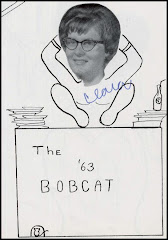



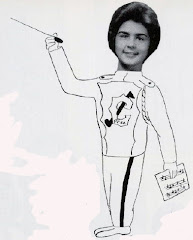
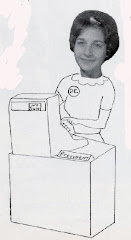
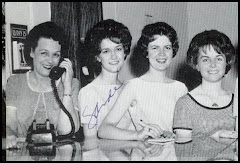
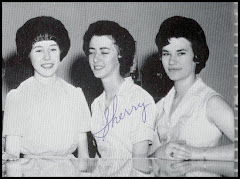

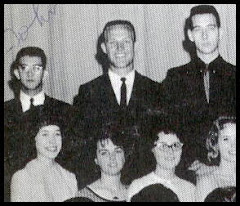


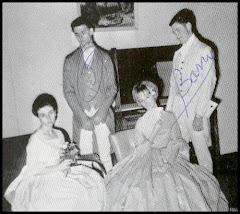

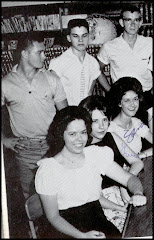
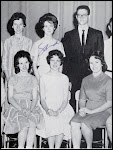
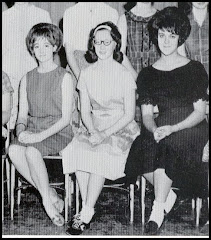.jpg)
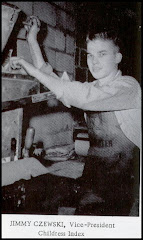
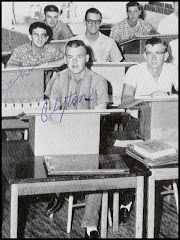
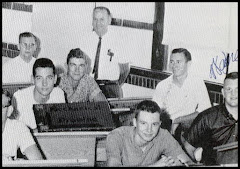

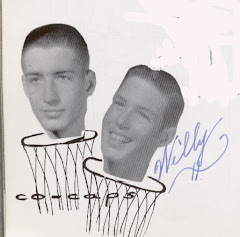
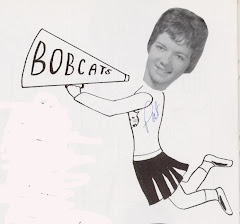
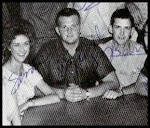
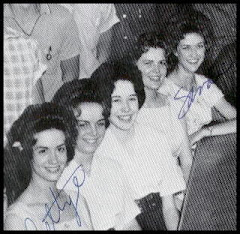
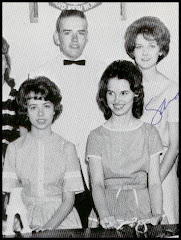

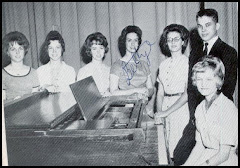
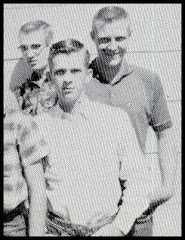

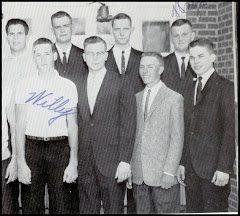

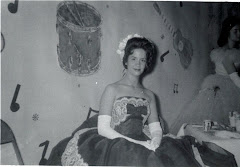
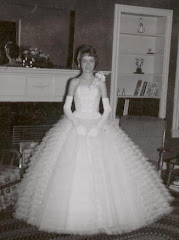
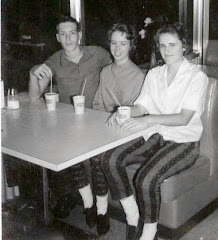
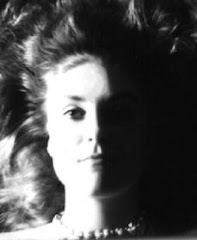.jpg)
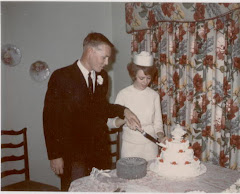
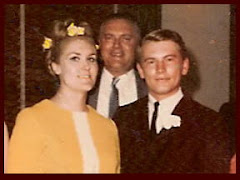
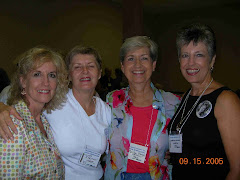

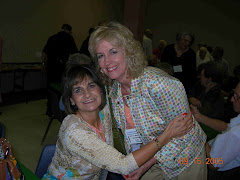
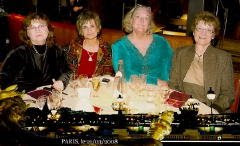.jpg)

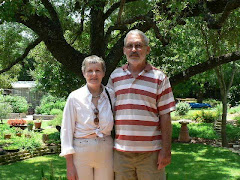

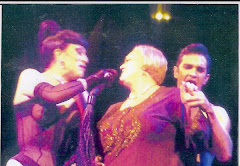
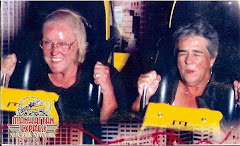.jpg)
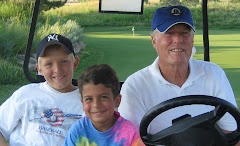.jpg)
23 comments:
Jenn - this is the best writing you have done. I thank you for the memories, some of which I'm sorry to say I'd forgotten. I'm more sure now than ever before that you should write the book you promised when we were in high school. I wonder if you remember the name you promised as I do. If you write it from the heart as you did this article, I know it would be a best seller.
Lynn Durham
Jennifer,
I agree with Lynn that this is most certainly at the top of your best writing so far. You have given us a very comprehensive look at 1968. I remember most if not all of the events of which you have written, but I don't know if I realized that all of them took place in one year. It is, to me, mind boggling that so many significant events occurred in such a short period of our lives. As I told you earlier, I was pretty wrapped up in the changes taking place in my own life so I think it was easy for me to down play world events! I was pregnant with our second daughter for most of the year (October 12), I got my first job as a teacher, and we made a major change by leaving Lubbock and moving to Amarillo for Jim's work.
Thanks for another great addition to the blog!
Lynn and Nicki, thank you both for your wonderful comments, and compliments. They are more appreciated than I can possibly express.
Perhaps due in some degree to the fact that Yahn and I married that year ... or perhaps because of my lifelong fascination with history and my agreement with George Santayana's observation that "Those who cannot remember the past are condemned to repeat it" (still "right on") ... 1968 has always loomed large in my mind as part of the prologue for our generation and the foundation for the diverse people we are today. And IMHO, the blog has been such a blessing for us to find out how we grew and who we became through all the times of our lives.
I know there are others out there who not only have memories of 1968, but of other years now part of the past in our journeys through this life, and we would certainly love to hear from you, either as comment to this post or perhaps in your own "topic" post. We do so want to hear your "voices" and thoughts....
Lynn, of course I remember the book we used to talk about while riding around on "the drag" in Childress, or in our occasional forays into "forbidden" territory ... Quanah, Memphis, Shamrock, Hollis, Tell, Roaring Springs ... and I remember that I called the putative book "I See Red." When I retired from legal work, I felt like I didn't want to write anything again ... EVER. I must say writing for the blog has rekindled my interest ... and perhaps that book will one day be written ... but no offense, I think I'm gonna have to rethink that title ... or severely limit the scope of the book.... (grin)
And I want to thank those of you who have taken time to e-mail me that you enjoyed this post, and my writing ... though you indicated your remarks were not for publication. (That "wall" Nicki mentioned....) Nevertheless, Nicki and I are pleased that you do read the things published here ... that they apparently spark memory and "mean something" to you ... and that eventually, when it is appropriate, you will venture out again into the "wilds" of Blogland.... But for now, thank you so much for being there and being part of this....
)O(
Nice work! I agree with Lynn and Nicki.
Thanks for rekindling a time of our life.
I do believe this is the best post you’ve done in terms of its being a clear, concise recapitulation of the significant markers from the year 1968. And what interesting reading it was! If there were a grade higher than an A+, you certainly earned it. I can claim no credit for the high level you’ve achieved in your writing, both of the serious and the humorous sort. Why you aren’t writing professionally is beyond me, since you obviously have the brains and the talent. Great work!
Excellent! Excellent! Thank you. I remember being alive in 1968 and watching as these events unfold as if we were living a bad movie. We were so young and so impressionable, but no more so than our parents who had to endure WWII.
Have you ever wondered why Vietnam is one of the top tourists spots in the world at this time?
Clara, thanks for your comment ... I am glad the post kindled memories for you. We would of course be honored if you would share some of them with us in more depth. But I must say we are delighted to see your name cropping up more frequently.
Darryl, it is also wonderful to see your name on the blog again ... and to read the very nice things you have said to me and to Nicki. Your comment to her last post was interesting, particularly to another voracious reader ... and I am as always pleased by the kind and generous things you have said about my efforts. You are too modest in assessing your effect on my writing ... among other things, you gave me the gift of confidence so that I could write ... and you always inspired me to strive for "perfection" no matter how difficult or elusive that goal might be ... and I will forever be grateful. Now ... as for a grade beyond A+, which signifies "Best" ... would that be A++, or "Bestest"??? (grin)
Sheila, thank you as well for commenting, and for finding something of our shared past in what I wrote. Our parents endured the shocks and hardships of WWII with a sense of shared sacrifice and purpose, with a clear-cut enemy and goal, which unfortunately was not the case in Vietnam, where we never actually declared war or asked our civilian population to assume the burdens of war, as our military was doing.
There are several reasons why Vietnam is such a "hot" tourist spot these days: First, the dollar goes a lot farther in Asia than it does in European countries. Second, Vietnam is an exotic and beautiful land with a significant history and many things to see and learn. And third ... I believe our generation is drawn there because so many of us served there, and because we (even those who didn't serve) left so much of our hearts, our souls and our minds ... along with the ghosts of our dead ... in that country, and we are still seeking to understand what happened there, and why, and what might have made a difference.
)O(
I think one of the most fascinating changes that you mentioned were in the clothing and hair styles. When I think back to my early days as a teacher in the classroom, I cringe when I remember how very short my skirts and dresses were. I have to remind myself that I was just a "kid" myself, but I still cringe. As a teacher, it was required that we have our pictures made every year for the school annual so I have pictures of myself for every year in the 70's and 80's. By the 90's I usually didn't have the picture made. Anyway, I have pulled all of them out to show the girls and we have laughed and laughed over the "styles". It really is a hoot to look at them. We also get to see Jim in his leisure suit, his mustache, sideburns and so on. What fun! I still have a long dress from the 70's that I wore. I got it especially for a trip to New Orleans. I still love it and if only it still fit!!! I wore it with platform shoes. I also remember decorating with macrame, mushrooms, owls, orange colors, and a lot of decoupaged items. I even learned to macrame and, of course, everyone on my Christmas list got hanging plant holders that year. One other fashion note--One year at school we had a new teacher who always came to school not wearing a bra. I guess she had burned it! It was such a scandal at that time. Yes, things were a-changing!!
Nicki, I laugh as I read your post on fashion. We are such victims, aren't we? When I left for UT
in August of 63, I had mistakenly shopped for clothing in Childress, without taking into consideration that Austin might have a different climate for fashion. I shopped like I was going back to high school and of course, I would NOT listen to a word of warning from my very wise mother who suggested that I might not want to buy so much here and maybe I should wait until I got to Austin so I could shop properly. Of course, I thought she was NUTS! Who in Childress had ever heard of Old Maine Trotters? or Madras plaid? or stretch pants and turtle neck sweaters. I guess the good thing for me was that I didn't spend a lot of money on apparel, because I lost most of everything I owned one evening at the Laundromat across the street from my boarding house. I am still in shock that someone wanted all of those silly high school clothes!
One of my most memorable purchases was from Saied's. It was a black double knit Italian wool suit. Whatever that was, it was lovely. Straight skirt and a bolero type of jacket with silk satin baby buttons and trim. when I wore that suit topped off with my Jackie Kennedy pillbox hat, I was Ruler of the Earth! Of course, I could only wear it with Barely There Nude stockings and only to a VERY air conditioned Church...that type of wool and Austin are not very compatible. Oh yes! Those were the days!
My hair, for the most part was always long enough to wear in a "teased twist", which was fashionable for many years....or at least I hope it was! lol!!
Then one day, someone told me that "teasing' was bad for your hair! OMG,,,a shift, a change! The status quo was gone. Now that I think of it, I think that was in 68, because it is the year that I cut off all of my long black hair because my son was about 6 mos old and my hair just didn't look the same anymore... Wonder why?! When I look back at pictures of us at that time, I am so thankful to be able to laugh. We were just a product of the times!
I do remember falling in love with Cher and her unbelievably thin body and very long straight hair. Everything looked great on her, even her fingernails. She is the reason I learned to sew. I couldn't find the things that she wore, but I thought that maybe I could make them...and that is another story.
Speaking of not wearing a bra...I remember when "see thru" shirts were very popular in 69/70. They were worn by women without bras! Of course the designers were very conscientious about putting pockets on the fronts of the shirts so that not everything was visible. I made a see thru shirt for an art gallery opening, but it looked a bit funny with my bra! Of course, this was before Victoria's Secret, who solved all of our Intimate Apparel secrets.
Nicki and Sheila ... "grrrrls" in the parlance of more recent times (with perhaps a bit of wishful thinking thrown in as to demographic) ... your comments on changing fashions are great, fun to read and certainly conjure memory.
Nicki ... first ... I am sure our readers would love to see a selection of those "changing" pictures of you and Jim ... perhaps on "Short Notes". I'm hopeful we can persuade you to share some of them with us.
As for your "short" skirts as a teacher ... I well remember some of my own adventures into incipient indecent exposure. As I've related on the blog before, my grandmother copied a lot of those "mod" styles from Quant and Carnaby Street and made many of my clothes ... fitted on me, so she KNEW just how short they were ... but though it was all right for me to wear them in Dallas, it was definitely NOT OK for me to run around Childress so attired.
One of my favorite things she made was a burgundy (so much THE color during those times) crushed velvet fitted tunic top, with little tiny gold buttons individually sewn up the asymmetric fold of the bodice to the top of the mandarin collar. The bottom of the top barely (grin) covered my gluteus maximus, and there was a pair of pants that went with it. Mamaw probably would have collapsed in shock had she known that I NEVER wore the pants that she had so carefully crafted and always wore the tunic by itself. She also made a gorgeous cranberry velvet minidress for me, with flowing white lace collar and cuffs, which wasn't much longer than the tunic top. One of my favorite things was a shimmery, gold-green empire-waist baby-doll minidress ... every time I wore it, women would come up to me and ask where I bought it, declaring that they had to have one, too. (I've got a picture of this somewhere, and will share it when I can lay hands on it.) And of course the yellow baby-doll dress with white lace trim I wore when Yahn and I married (see my entry on Show and Tell) ... with my Valley of the Dolls upswept hairdo with yellow roses strategically placed ... was made by Mamaw as well.
Sheila, I bought my first Old Maine Trotters at Saied's before I left for Tech ... I remember Najla Saied telling me they were "the thing" for college and I did think they were cool, and I snapped up all Madras I could just as soon as I hit Lubbock ... worn also with Bass Weejuns (oxblood, of course). (I remember being fascinated by the fact that Madras "bled" when washed ... if it didn't bleed, it wasn't Madras, and I didn't want it.) When I arrived at Tech, my grandfather had given me $300 as my "allowance" for the entire first semester ... and it was gone within two weeks ... one "had to have" purchase was a light brown suede coat with black leather trim and matching (brown suede) knee-high boots. Fortunately, Papa was indulgent (probably more than he should have been) and replenished my coffers so I didn't have to scrounge for crumbs at the Student Union.
As for "thin" bodies like Cher's ... I was not genetically made that way either. I remember soon after Yahn and I started dating, he made some remark that he really liked Twiggy's look ... and I thought "Well, that'll never happen." Fortunately he wasn't too hung up on that ... which reminds me just how many of the idioms from 1968 and the years immediately adjacent are still in use today....
)O(
Amid all this talk of history and remembrance ... and fashion!!! which is so much fun ... I must note that I've received the same e-mail from different people in two days. It contains photographs of Nazi concentration camps and some of their victims after the camps were liberated, one by one, as WWII came to a close in Europe.
General Dwight D. "Ike" Eisenhower (later President of the U.S.), then Supreme Commander of the Allied Forces in Europe, ordered that a photographic record be made of the liberation of the camps, the mountains of dead and those who were still barely alive. When he was asked why he would want photographs of such horrible things, Ike presciently remarked that one day there would be people who would deny that such things had taken place, and that the photos were were to be a record so that people could never deny, or forget, what had happened.
Ike was indeed right ... although he failed to reckon the skill with which some people some day would be able to "fake" or "doctor" photographs. (A few scurrilous ones making the rounds of the Internet about one particular presidential candidate come to mind. And be careful what you accept and believe about such things ... seeing can no longer be said to be a basis for belief. But I digress....)
There are those over the past few decades who are working to deny or revise the records of the Holocaust, and other horrors perpetrated by the Germans (and Japanese) in WWII ... and it deeply troubles me that there are growing numbers of such people who not only doubt and deny for their own suspect reasons ... but worse, seek to sow doubt and denial among young people about these terrible things.
IMHO, some of this might be prevented by more focus on history (both U.S. and World), not only in the classroom but at home. I remember being appalled as a sophomore at CHS (in 1963!) that there were only a few paragraphs devoted to WWII in our history books, and nothing about the Holocaust. Some of our classmates didn't even know who Adolf Hitler was!
Things are even worse now ... in large part due to "dumbing down" of curriculum and class discussion, as well as the denial or denigration of any standard of "excellence" with "gold stars" awarded to all simply for just showing up. We should be very afraid, if not downright angry. As Yahn used to lament when he was teaching ... his students had never read a book and were proud of it!!! And Santayana's dictum rings ever more alarmingly....
)O(
As a teacher, I frequently got into trouble and probably would have been more successful if I could have just kept my mouth shut. Once when the "educrats" running the school wanted us to give out an "award" to the "most improved" student in every class, every quarter, I suggested that we have the award certificates printed up on big rolls. That way we could hang them up in the bathrooms and anyone who wanted an award could just tear one off for themselves. This was met with less than enthusiastic responses from the administration... but we didn't have to give out the "feel good" awards.
When a supposed "high school graduate" turned in a totally illiterate paper (I mean I could not even figure out what he was trying to tell me) I wrote that his level of literacy would not only keep him out of any of the fields we were preparing them for but basically would make him unemployable. I was told by the Director of Education at the school (with a "doctorate" in education) that I had destroyed this student's self esteem . I thought he was going to have a stroke when I told him that I didn't teach self esteem and that I could neither give it out nor take it away. Self esteem is something one must earn.
For better than twenty years I taught college-aged students in a very wide range of subjects. I watched as the quality of student went steadily down hill. By the end I was spending as much time on classroom discipline as teaching the course material. This was in an expensive, private school where everyone supposedly had chosen to study. The students knew nothing and seemed to want to keep it that way. I was considered a hard professor because I wouldn't let students sleep through the lectures in my classes. Idiots like Rod Paige (former head of Houston 's school system and then Secretary of Education) and his fellow educrats have so destroyed our schools that I don't know what can be done to save them.
I also received these haunting pictures from Jim Spradley. I am probably one of those in High School who knew very little, if anything about Hitler and his Third Reich. I think about what we were taught and can only think that our country was still in shock from the war. After all, we lived in innocent times...not like today. We were the children of those who had gone to war. Maybe our parents were trying to protect our innocence. Maybe...not sure about that. I hate to confess, but my knowledge of the death camps was almost nonexistent until my second son, born in 1978, insisted that I watch a movie called "Escape from Sobibor" I think that was sometime in the early 90's. Pathetic, isn't it. That movie opened my mind and many avenues to learing more about the Holocaust. However, I do believe that the movie was not nearly as much of an eye opener as it could have been.
As hard as it is to read and watch, I am thankful for the many movies and stories made available to us so we can learn of the devastation rendered by the Holocaust. One of the short stories I recently recommended, The Shawl by Cynthia Orzik, is the story of a young mother, her starving baby that she tries to keep concealed in her beautiful shawl, and her young selfish niece, as they are being marched to one of the Nazi death camps. It is a story you will never forget as the author describes the effects of the fear, starvation, and the numbness of emotions at having lost their good lives. If you read stories like this and see pictures like the ones Jim Spradley sent, you will never forget that the Holocaust was real and could so easily happen again. Well, I guess similar things do happen all over the world. Mindboggling, isn't it.
One more troubling thing that comes to mind. I am amazed at how many of our your high school students...just the ones with whom I am associated and I know there are many others...think of Hitler as some kind of God and that he did a great job!! Of course, I try to set them straight, but there is only so much a bus driver can do. Pretty scary.
Jennifer, thanks for sharing your comments about
Sheila, thanks for your thoughts on the Holocaust ... and yes, Cynthia Ozick's story The Shawl is haunting and heartbreaking and deeply moving as it describes "the coldness of hell." Did you know there's a sequel ... Rosa's Story? If not, you might be interested in it ... although it is also difficult to read and searingly describes "wounds that are too deep for healing."
I first became interested in the Holocaust when I read Leon Uris's Exodus in 1958 or '59, and it just blew me away. The Holocaust became an absolute obsession for me in May 1960, when Adolf Eichmann was captured by the Israeli Mossad in Argentina and returned to Israel for trial (and subsequent execution for his crimes). There were stories in The Childress Index and The Fort Worth Star-Telegram (and Time and Newsweek) about the charges against him, and I remember reading them in almost complete incomprehension that man was capable of such inhumanity. In 1961 I read Uris's Mila 18, a fictionalized account of the real fighters of the Warsaw Ghetto (a truly heroic story). And I read Elie Wiesel's Night ... and have continued to read and admire Wiesel, a truly brave and eloquent advocate for human rights, to this day. And there were so many other books I read then....
One of the things that was hardest for me to comprehend is that our country had the power to save many European Jews before the Holocaust, but turned them away because of isolationism and anti-Semitism.
I remember in high school a lot of girls wore small gold crosses ... and some wore single pearl "drops" ... some wore their boyfriends' high school rings ... and a few wore fraternity pins or Greek letters from their college boyfriends. (I just had a flash and remember Pat Davenport wore a Greek letter necklace from Hugh Gayle Frith for a while ... I think Hugh Gayle's fraternity may have been Alpha Tau Omega, if memory serves.... But I digress....)
But one day during our sophomore year, I went downtown to Boles' Jewelry and asked Mr. Boles to order a necklace for me ... the Magen David (Star of David) ... which I wore through the rest of high school and until it was somehow lost a couple of years after graduation. For about three years, every time I went to Denver to visit, I scheduled a meeting with Rabbi David Gold of Temple Emmanuel to discuss Jewish theology and belief.
You didn't mention it, but I assume you've seen Steven Spielberg's Schindler's List, IMHO one of the finest motion pictures and arguably the best dramatization of the horrors of the Holocaust juxgtaposed with hope for man's ultimate nobility of spirit. Ralph Fiennes so nailed the banality of evil that Hannah Arendt described ... and again IMHO, Liam Niason was robbed of the Academy Award for Best Actor that year ... although Tom Hanks was great in Philadelphia. Spielberg deservedly won for Best Director and Best Picture, and went on to establish the Shoah Foundation, which is attempting to gather and record the stories of Holocaust survivors before there are none left to speak.
I truly believe that it is up to all of us to make sure we, and our children, and grandchildren never forget ... the Holocaust, the Killing Fields of Cambodia, the Rwandan genocide, the "ethnic cleansing" in Bosnia and Herzegovina, the ongoing atrocities in Darfur ... any time human rights and lives are violated by men who think they have the right to subjugate and kill other men because of differences in race, religion, ethnicity, or ... whatever excuse may be fashionable.
Since high school, I've retained and frequently ponder a statement generally attributed to the Rev. Martin Niemoeller, which varies slightly, but I think it is worthy of repetition here:
"In Germany, they came first for the Communists, And I didn’t speak up because I wasn’t a Communist;
And then they came for the trade unionists, And I didn’t speak up because I wasn’t a trade unionist;
And then they came for the Jews, And I didn’t speak up because I wasn’t a Jew;
And then ... they came for me.... And by that time there was no one left to speak up."
I fear I would not be nearly so patient with your bus students ... but what is truly frightening is that they don't KNOW any better....
)O(
Jenn, I must have read your comment on the Eisenhower e-mail immediately after you posted it and enjoyed it very much. I agree with Lynn and Nicki, you should write a novel, or maybe a bio.
Jenn, to an extent, you are right about my bus students, They may not know better, but I have to ask WHY??? What are their parents doing? Who is teaching these children about human rights...basic human rights? Not that affluence has anything to do with anything, but these are privileged children from affluent families who live in Lakeway, one of the richest school district in Texas....always looking for a cause to help mankind. One mindboggling conversation I had with one of my students after overhearing one of my Neo Nazi students condeming the Jews...(I had to stop the bus and threaten the little prick with duct tape if he didn't keep his antisemitism to himself...)
This young Catholic girl looked at me and asked..."What is a Jew?" I was so shocked that I couldn't speak. This young lady is an HONOR student at Lake Travis HS and for her church, she goes on religious retreats to help the underpriviledged in the USA....nothing so specific as Katrina or something with a cause or something that would require sweat, but something that is very protected and safe...Oh well, she is only in high school...I could go on, but I will spare all of you my frustrations on this subject for now. Thanks for hearing me.
My mind is wandering to Ravi Shankar, embroidered purple cotton tunic tops and bell bottom hip huggers...and back to The Doors. Safe...peaceful...my youth. Needless to say, it is time for bed, but as I close my eyes, all I can see are pictures of the death camps with the mountains of eyeglasses and shoes that were discared before the Jews were gased then burned...or buried in mass graves. Starvation comes to mind. God Bless us and our freedoms.
goodnight.
Jenn...just a short note here. Yes, I have read the story of Rose. How could one not read that after reading The Shawl. So sad, trying to live with all of those scars...to be able to again find life and then forgiveness.
I saw Schindler's List and was blown away with the risks taken by one man to try to save those that he could save. Great story. There was another story with Vanessa Redgrave..I think it was called Julia...same thinkning.
Sheila, the questions in your comment perfectly illustrate my point as to why it is "truly frightening" that these kids don't KNOW any better. Of course it is because they haven't been taught by their parents ... and they aren't being taught by our school system. There is plenty of information (books, movies, documentaries, etc.) "out there" and available for them to study and learn ... but unless they are pointed in a direction where they may find it ... indeed where they may find any good and enlightening information besides how to play the latest, hottest video game ... they will remain ignorant and easy prey for rumors and propaganda and those (and there are many) who would foster hatred and division among us.
Bravo for taking on the boy on your bus and his anti-Semitic statements ... and I must say an image of him swathed in duct tape has a definite visceral appeal. As for the Catholic honor student ... it is unlikely that she will receive instruction in the Holocaust and related matters from the Catholic Church, which did not exactly cover itself in glory in opposing the Holocaust and the Nazis. Pope Pius XII is generally considered to be a Nazi-enabler, if not a sympathizer. Indeed, the persecution of the Jews and the Holocaust was facilitated in large part by centuries-old and widespread anti-Semitism in Europe, based in large part on the Church's strident and hate-mongering teachings that the Jews killed Christ, and on such canards as "The Protocols of the Learned Elders of Zion" ... a total fabrication when it was published in the 19th Century, which has alarmingly seen a resurgence and redistribution in the past few years, particularly in Arab countries but in our country as well. Although I must note it may be a perverse progress of sorts that the young lady on your bus at least didn't have a clue what a Jew was ... rather than immediately characterizing them as Christ- and baby-killers ....
There were many like Oskar Schindler, and many nuns and priests among others, who did bravely and honorably risk all to try and help the Jews, or at least ameliorate the horrors of the Holocaust ... but unfortunately the "many" were far too few, and there was no widespread sense of revulsion and resistance among majority Christian populations regarding the things being done to their neighbors.
In the interests of accuracy and the historical record, I must mention that the movie Julia was taken from Lillian Hellman's allegedly autobiographical book Pentimento: An Unfinished Woman, in part purportedly a recounting of Hellman and her friend "Julia" and "Hellman's" work to assist the anti-Hitler underground. Hellman's assertions about herself were subsequently denounced by many, including Muriel Gardiner, who identified herself as the "Julia" of the tale, and averred that Lillian Hellman had never smuggled anything to her during Gardiner's days in the Resistance ... leading to (IMHO) one of the greatest lines ever delivered on late night television, on The Dick Cavett Show, when novelist Mary McCarthy (The Group) said of Hellman: "Everything she writes is a lie, including 'and' and 'the'."
Yahn and I visited Washington, D.C. a few years ago, and of course there were some things that we just had to see. One was the Vietnam Veterans Memorial Wall and sculptures, which even today I cannot see even in photographs without crying. The stark simplicity and tragic beauty of The Wall, those seemingly endless rows of names of those who did not have the opportunity to realize the people they might have become, all the heart-breaking offerings that are left daily in honor of those who served and died, and the electrically charged emotions emanating all around from those who have come to see and pay respects were almost more than I could bear ... and it was a long time before Yahn and I could move on (another metaphor for our country, perhaps).
The second was the United States Holocaust Memorial Museum, which although not as comprehensive as the Yad Vashem Holocaust memorial museum and archives in Jerusalem, is nevertheless devastating. Toward the end of the tour of the museum, after emotions have been rubbed raw by the terrible exhibits (including walking through an actual railroad car in which Jews were shipped (the majority to their deaths) to ghettoes and concentration camps, you enter a small, narrow room which extends high over your head and is lined all around with photographs of Jewish people, families, from one shtetl (a village where Jews had been ordered to live to segregate them from the Christian population).
As I contemplated the hundreds of people depicted in those photos, as I studied their faces and looked into their eyes, the realization that most of those people were murdered by the Nazis ... and the inescapable detail that the room is specifically designed to resemble the smokestack of a Nazi crematorium ... just totally overwhelmed me and I began to cry uncontrollably, unable to move, until Yahn gently steered me into the next room ... which contains the shoes of many of the victims ... and I lost it completely. Those shoes, those haunting artifacts of everyday life, those shoes worn by so many real, living PEOPLE sent to their deaths on their final journeys of this life ... particularly the shoes of the children ... certainly are among the most shattering, silent testimonials to man's inhumanity that I have ever seen. Yahn and a docent had to lead me to an adjacent room where I could regain composure. And yet, I am still and will ever be haunted by those shoes....
Thank you for your comments, and for keeping this admittedly difficult discussion going a bit longer, because such discussions help keep a promise to the dead, to the living, and those yet to be born that we will NEVER FORGET ... and will not let others forget or distort what occurred in Europe at the behest of a madman and his equally deranged sycophants and followers, only about 60 years ago ... not such a long time, in the great scheme of things ....
Yet despite the vow to never forget, tragically such things are still happening in our world today, which begs the question: Have we in fact learned ANYTHING from this terrible chapter in our past ... ARE we capable of learning anything ... except to compartmentalize and relegate such painful things to "ancient history" and move on to contemplation of "more interesting" things?
Of course, this subject and the topic of 1968 and its effect on our generation remain open ... and we are most interested in any and all recollections and comments any of you may have....
)O(
Oh yes, Sheila ... you mentioned Ravi Shankar ... in 1968 I could (and did) listen for hours to him playing his exotic, evocative, magic sitar. The scent of incense (my favorite was always sandalwood), the clacking and clicking of wooden and glass beads, the soft (sometimes cacophonous) notes of wind chimes, and day-glo psychedelic designs under black light come to mind.... A footnote: Shankar is the father of current singing star Norah Jones.
And I must admit, the Doors lit my fire on more than one occasion....
)O(
Just a little note about my high school bus riders and Hitler. I had the opportunity to visit with a few of them the other morning as we were on our way to school. I asked if any of them knew of Adolf Hitler. They all spoke at once and with great excitement. I heard words like..."he was an artist, but failed at that because his art was considered 'too dark'. he was a Jew..or at least his mother was Jewish. It is believed that she sexually molested him and that is why he hated women and Jews."
I must say, they knew a lot more than I thought they knew. They all remembered studying the Holocaust in the 8th grade and had retain a wealth of information. I was pleased and impressed with their retention of knowledge and facts and with the looks on their faces when they spoke about it all. How it shapes their future...??? we shall see.
ok...I am off of this subject for now. Thanks for reading.
Sheila, rather than being reassured, I am even more concerned about your bus riders and the things they think they "know" about Adolf Hitler ... and possibly the Holocaust, although you did not elaborate on your discussion of that subject with them. Although the assertions made to you by your students are fairly common misconceptions, they illustrate how easily disinformation and falsehood can take root in the public mind and imagination. Indeed, campaigns of disinformation by Hitler and his henchmen opened the door to WWII and the Holocaust.
Adolf Hitler's artwork, far from being considered "too dark" was actually deemed too pedestrian and unimaginative ... lacking in artistic "spark" if you will ... to allow him any sort of success as an artist, although there are some intimations that he may have blamed Jewish professors and art critics for his failure in this endeavor.
His mother was not Jewish ... this notion was debunked many years ago, and while it is possible that there may have been a Jewish relative in his family tree, any such connection was tenuous, and it is highly unlikely that any abuse (if any) he may have suffered at the hands of his family would have brought on Hitler's obsessive hatred against the Jewish people. Any suppositions that Hitler was sexually abused by anyone in his family, or by the local parish priest for that matter, are speculative at best, and are sometimes offered as apologia, a "reasonable" explanation, for his totally reprehensible acts.
It is much more likely that, given the pervasive anti-Semitism in Europe at the time, Hitler grew up predisposed to a dislike or loathing of Jews, and later shrewdly and conveniently used the Jews as scapegoats and whipping boys to appeal to the masses to further his domination of the majority Christian populations in Germany and Austria, and later in Poland, Russia and other countries. He was certainly savvy enough to know that anti-Semitism would not be a hard sell to other Europeans, and it is arguable that the Holocaust might not have occurred without the casual acquiescence (and in some cases enthusiastic support) of Christians.
This kind of misinformation and disinformation can be more destructive than having NO information. It was Hitler's propaganda chief Joseph Goebbels who so clearly articulated that if you tell a big enough lie, and repeat it often enough, people will come to accept it as truth. We would do well to remember such things today, particularly given some of the events of the past few years.
)O(
Jennifer, you are right...I didn't go into any detail about the conversation. The bus ride was short, less that 20 minutes, and was bouncy, noisy, and with constant interruptions. Being involved in any kind of intense conversation while driving a school bus is a bit difficult. My purpose was very simple, to find out if any of them were even aware of Hitler and the Holocaust. The rest of the information was a freebie...I didn't ask for it...just found it interesting that these kids knew so much were so excited to share their information. So...I decided to share it with those of you who might be interested. Guess I should get my facts straight, too, before sharing such misinformation. Guess there is a lot of that going around. Sorry.
Post a Comment